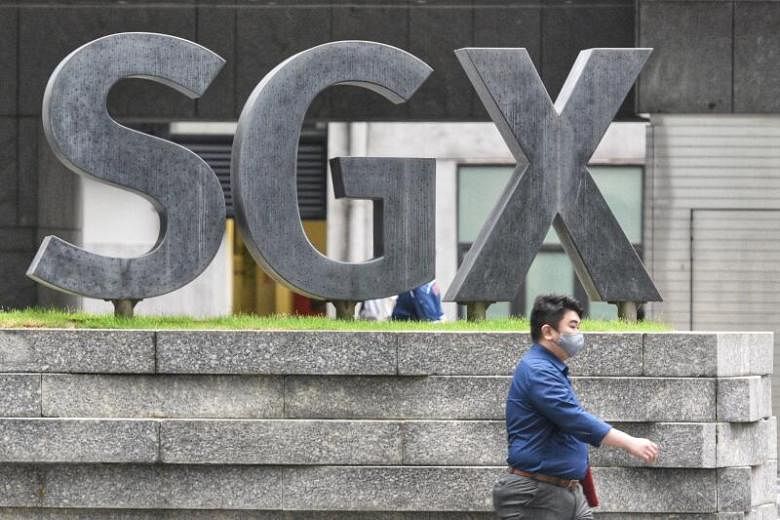SINGAPORE - US equities last week were rattled by a sharp upwards movement in US bond yields, which many market watchers fear is a sign of inflationary pressures which could prompt the Federal Reserve to reverse its market-supportive low interest rate policy.
The bluechip Dow Jones index ended a volatile week at 30,932.37 points last Friday, down 561.95 points for the week, while the broader S&P index gave up 95.56 points to end the week at 3,811.15. The tech-heavy Nasdaq lost 682 points for the week to end at 13,192.34 as "big tech" came under selling pressure on valuation concerns.
While Wall Street's volatility sent jitters through many global markets, Singapore seems to have focused on local factors, led by potential earnings recovery ahead.
The Straits Times index gained 68.4 points for the week to end last Friday's session at 2,949.04 points - its second highest close in a month as market players focused on the improving outlook ahead.
But the sharp hike in US 10-year bond yields to above 1.6 per cent last week has sent shivers through the market. As of Friday's close it was at 1.407, the highest since February 2020. If bond yields go any higher, they would would surpass the 1.43 per cent average yield for the S&P.
So is the 11-month-long stock market rally coming to an end? Are interest rates and inflation poised to rise?
Not likely.
Federal Reserve chairman Jerome Powell pushed back against this suggestion.
Testifying last week, he noted that despite recent progress in the labour market, millions of Americans remained out of work: "The economic dislocation has upended many lives and created great uncertainty about the future. The economy is a long way from our employment and inflation goals, and it is likely to take some time for substantial further progress to be achieved."
The message from the world's most powerful central banker is this: the US economy needs all the help it can get, whether cheap credit or more stimulus. And it will continue getting it, for as long as it needs it.
Indeed, there is some noticeable overheating in some segments of the economy.
But the Fed has downplayed fears that asset price rises will prompt policy normalisation, saying that such a rise "doesn't necessarily lead to inflation" other than a one-off impact on prices, which the Fed is inclined to look through. In other words, it is focused on flexible average inflation targeting and is unfazed by a near-term initial rise in commodity and some asset prices.
Also, here's the thing about inflation.
Unlike the 1950s to 1980s, when a surge in household wealth and super-charged demand fueled price rises, many economies around the world - especially in the West - have seen the flattening out of population growth, and thus demand. On the supply side, the entry of China into the global economy 30 years ago boosted output and put downward pressure on prices.
While price stability was a primary concern of governments and central bankers in earlier decades, today they are more concerned about employment, income and job market stability. More so as the income disparity in many societies has widened.
As OCBC Investment Research noted last week, rising yields signals optimism in the economy, prompting investors to rotate to areas in the market which would benefit from economic reopening and reflation.
In fact, given the huge amount of liquidity sloshing around the system, and more fiscal stimulus on the way, interest rates are likely to remain lower for longer. The search for yield will continue. And the best place to find it is the equity market.
On the local bourse, bank stocks performed well despite poorer results as investors looked ahead to the economic recovery. Averaging 6 per cent gains in February, these stocks saw a combined $295 million of monthly institutional inflow last month.
One of the top performers was Singapore Airlines.
SIA, which saw $130 million of net institutional inflows in February, hit its highest level in nine months last week before closing at $4.98 last Friday. Brokers attributed this to anticipation that the Covid-19 vaccine roll-out and falling infection numbers worldwide portend better days ahead for the carrier.
Given the high liquidity-low yield environment, economic reflation, and increased savings being diverted into the equity markets, the upside for stocks remains intact for now. But be prepared for bouts of profit taking along the way up.


